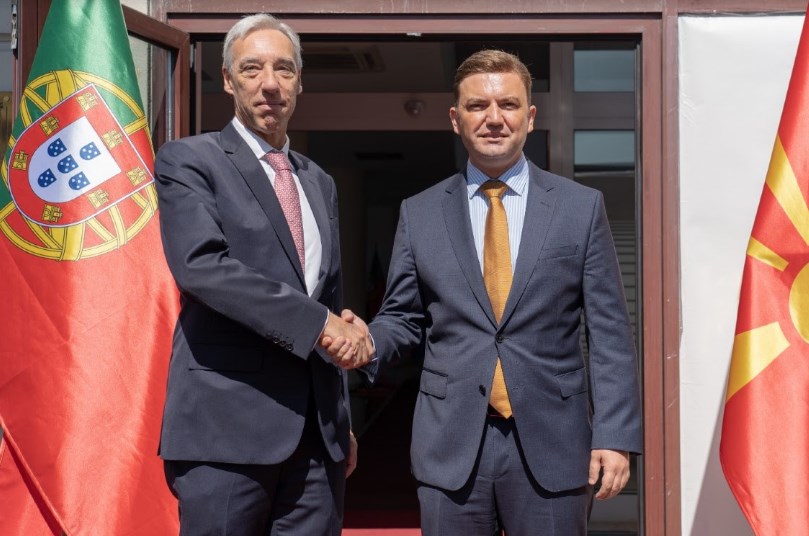Portugal will continue to provide full political and technical support to Macedonia in the entire European integration process of the country and does not expect further bilateral blockades from Bulgaria during the negotiations with the EU, this was the message sent yesterday from Skopje by the head of Portuguese diplomacy, João Gomes Cravinho. According to him, Macedonia’s accession to the Union is essential not only for the country and the region, but also for the EU itself.
Gomes Cravinho does not expect that during the country’s negotiations with the EU, there will be a bilateral blockade from Bulgaria again, which for him is a closed issue. In response to a journalist’s question in which part was the Portuguese proposal improved, he assessed that “in politics the goal is not to achieve everything, but what is possible”.
We put a lot of effort during our presidency to put together a proposal that we wanted to be accepted. What makes the French proposal better? In politics the goal is not to achieve everything, but what is possible. If you look over the horizon, and not concentrate only on current events. That is why I give credit to the Macedonian leadership for overcoming the difficulties and moving the process forward. A very important step forward has been made. We believe that the agreement that has been reached is an agreement that allows the beginning of the screening process which is quite intensive and technically has two phases. The first is an explanatory screening, the EC explains the different phases, i.e. aspects of the legislation, then follows the bilateral screening when the gaps in the legislative framework of Macedonia are determined, says Gomes Cravinho, adding that the second intergovernmental conference will be held as soon as the screening is finished and as soon as the constitutional amendments are completed, assessing that all countries have difficult moments during the negotiations, but in the case of Macedonia, he sees no reason that there will be bilateral blockades.

Regarding the unilateral statement, Osmani believes that they managed to have all three elements despite the fact that the proposal from the German to the French presidency was only to state that it is an official language codified in 1945.
The visit comes at an extremely important moment for the EU enlargement process. We turned the long-standing disappointments, obstacles and blockages into an additional challenge that allowed us to reach a solution for starting membership negotiations with arguments, perseverance and faith in good neighborly relations. We agreed that the opening of the accession negotiations will bring multiple benefits – for Macedonia, for the region, but also for the credibility of the EU in the direction of completing the process of European unification, Osmani emphasized at the press conference with Gomes Cravinho.

According to him, the protocol with Bulgaria, the agreement was signed in good faith, and therefore the provisions in the part of monitoring hate speech should be viewed from that perspective, reminding that hate speech is also monitored in Bulgaria.

In response to the question whether the results of that referendum would be respected, Osmani said that this is defined by the Constitution and the laws.
It is not a question that I have to answer with yes or no, it will be done as the Constitution and laws say. But I think that really that question of the referendum should be said in which part. This means that you should either ask if you are for the Eurasian Union or if you are against the EU and against the Macedonian language in the EU. I don’t see any other reason for a referendum. And if there are such reasons for a referendum, that’s already another debate where we should sit down and everyone explain their position. If someone is in favor of stopping the accession process, if they are for a new alternative, that is legitimate, let them open that issue, the citizens will express their opinion. There is no other reason for a referendum, said Osmani.




Comments are closed for this post.